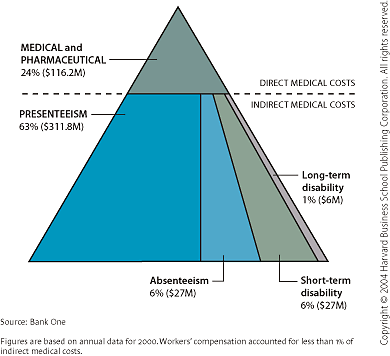“I’m sick, but that work needs to be done.”
“I don’t want to let my colleagues down.”
“Nobody else can do that.”
Sounds familiar, doesn’t it? This phenomenon is called presenteeism, which means showing up to work when you’re sick, hurt, or unable to work properly.
The results are disruptive for work environment, productivity, and finance.
The problem of presenteeism is widespread but still underestimated. Most employers are focused on fighting absenteeism – which is important too – but don’t tackle its opposite. However, either of the two problems indicates that the company needs to improve its absence management policy.
Presenteeism is rising – why?
Why would an employee turn up for work while actually not being able to perform work well? One of the main reasons is measures that the employers take to reduce absenteeism.
As experts point out, it’s a double-edged sword.
We all know why absenteeism is bad: it makes team’s capacity unpredictable, impairs morale and motivation, and increases managers’ time expenses. That’s why companies take decisive measures to handle it.
However, efforts targeted to tackle unscheduled absences can inadvertently invite presenteeism – and it is even worse for the company.
What’s more, absenteeism is a self-evident problem. An empty desk, a pile of work that remains undone, or an email notification about last-minute absence are what everyone can easily see.
With presenteeism, the problem is not so obvious. It’s often hard to identify employees who fall victim to it and, consequently, to take necessary steps.
Consequences of presenteeism
The most frequent and well-known consequence – and often the only apparent one – is spreading germs in the office.
Another consequence affects company’s finances. Research conducted by Bank One showed that the indirect costs of presenteeism exceed the costs of absenteeism. In the UK, it was estimated back in 2012 that presenteeism had cost the economy three times the cost of absenteeism, and this trend is not getting any better. The reasons are longer sick leaves, absences caused by stress and fatigue, and severe medical conditions provoked by presenteeism.

However, presenteeism is not only about medical conditions. It’s about any circumstances that would compel you to request a time-off: child care and other family issues, acute stress, lack of sleep – all that can affect health, family dynamics, and overall well-being.
When left without due attention, these circumstances not only decrease employee’s productivity levels – they undermine the ability to perform work properly. In the long-term perspective, accumulated tiredness and stress lead to burnout and impaired health.
Fighting presenteeism
As mentioned earlier, there’s a close relationship between presenteeism and absenteeism. So it’s hardly possible to fight one of them and ignore the other.
The two problems should be solved as a complex by implementing a mindful and efficient absence management policy.
The first step is de-stigmatizing absenteeism and reducing punitive measures for it. Make it clear to your team that it’s okay to be absent when they are sick, and make sure their attitude and your corporate culture don’t foster presenteeism.
Then, make sure all employees are familiar with the procedure of calling in sick or requesting time-off and understand possible reasons for their absences.
Introduce an automated absence management system to handle absences efficiently. It will help inform coworkers about last-minute absences and simplify management procedure. This way, requesting and approving a sick leave or a time-off won’t require too much effort.
Consider offering flexible schedules, as they help maintain a healthier work-life balance and prevent major absence management problems.
Summary
There is no doubt that people are the main asset of any company. And while maintaining discipline and morale is paramount for an effective team, it is also essential to treat the employees like adults and create work environments that eliminate stress, fatigue and burnout.
Preventing both absenteeism and presenteeism is crucial here: it helps maintain productivity levels, create healthy work environment, and save team managers’ time.




